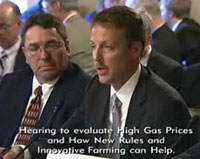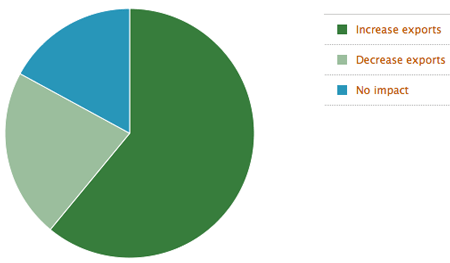 In the past several years, there seems to be a growing number of people who believe that global warming is a very orchestrated political and environmental hoax. As hype around Earth Day is growing (April 22, 2011), I thought it would be interesting to read, “Climate of Corruption: Politics and Power Behind the Global Warming Hoax,” by Larry Bell. Now Larry Bell is no more a climate scientist than Al Gore. He is a space architect and doesn’t pretend to be anything different. But Bell believes there is a conspiracy amongst us relating to the horrors of climate change that center around fossil-fuel CO2 emissions.
In the past several years, there seems to be a growing number of people who believe that global warming is a very orchestrated political and environmental hoax. As hype around Earth Day is growing (April 22, 2011), I thought it would be interesting to read, “Climate of Corruption: Politics and Power Behind the Global Warming Hoax,” by Larry Bell. Now Larry Bell is no more a climate scientist than Al Gore. He is a space architect and doesn’t pretend to be anything different. But Bell believes there is a conspiracy amongst us relating to the horrors of climate change that center around fossil-fuel CO2 emissions.
He writes, “Understand that the real impetus behind the cooked numbers and doomspeak of the global warmers has little to do with the state of the environment and much to do with shackling capitalism and transforming the American way of life in the interests of global wealth redistribution (“social justice”).
Bell acknowledges that climate change is real – only that it is not man-made- and says that no one can reliably predict what Earth’s global climate will be in a decade or longer. What he sees as the real problem is the global energy supply dilemma, one that he believes has no simple solution.
Throughout the book, Bell lays out his case for his way of thinking beginning with “outing” those who are “cooking the climate books.” This includes Al Gore as well as the United Nations’ Intergovernmental Panel on Climate Change (IPCC). In other words, he “sets the record straight.” From there, he highlights those that he believes are political hijackers of science – meaning policy makers who have molded climate science research to support their own agenda – mainly cap and trade. (I fondly call this crap and raid.) Bell argues that all forms of cap and trade are scams.Read More



 Following the release of the U.S. Department of Agriculture’s prospective plantings forecast in the morning, the
Following the release of the U.S. Department of Agriculture’s prospective plantings forecast in the morning, the 

 “Fundamentals and Farming: Evaluating High Gas Prices and How New Rules and Innovative Farming Can Help” featured a panel that included POET CEO Jeff Broin who testified on how the industry needs market access to help alleviate high gas prices by increasing ethanol supplies through expansion in cellulosic ethanol.
“Fundamentals and Farming: Evaluating High Gas Prices and How New Rules and Innovative Farming Can Help” featured a panel that included POET CEO Jeff Broin who testified on how the industry needs market access to help alleviate high gas prices by increasing ethanol supplies through expansion in cellulosic ethanol. Back by popular demand, the fifth
Back by popular demand, the fifth “In an economy that relies on oil, rising prices at the pump affect everybody – workers and farmers; truck drivers and restaurant owners,” said the president during a speech in Georgetown. “The only way for America’s energy supply to be truly secure is by permanently reducing our dependence on oil.”
“In an economy that relies on oil, rising prices at the pump affect everybody – workers and farmers; truck drivers and restaurant owners,” said the president during a speech in Georgetown. “The only way for America’s energy supply to be truly secure is by permanently reducing our dependence on oil.”

